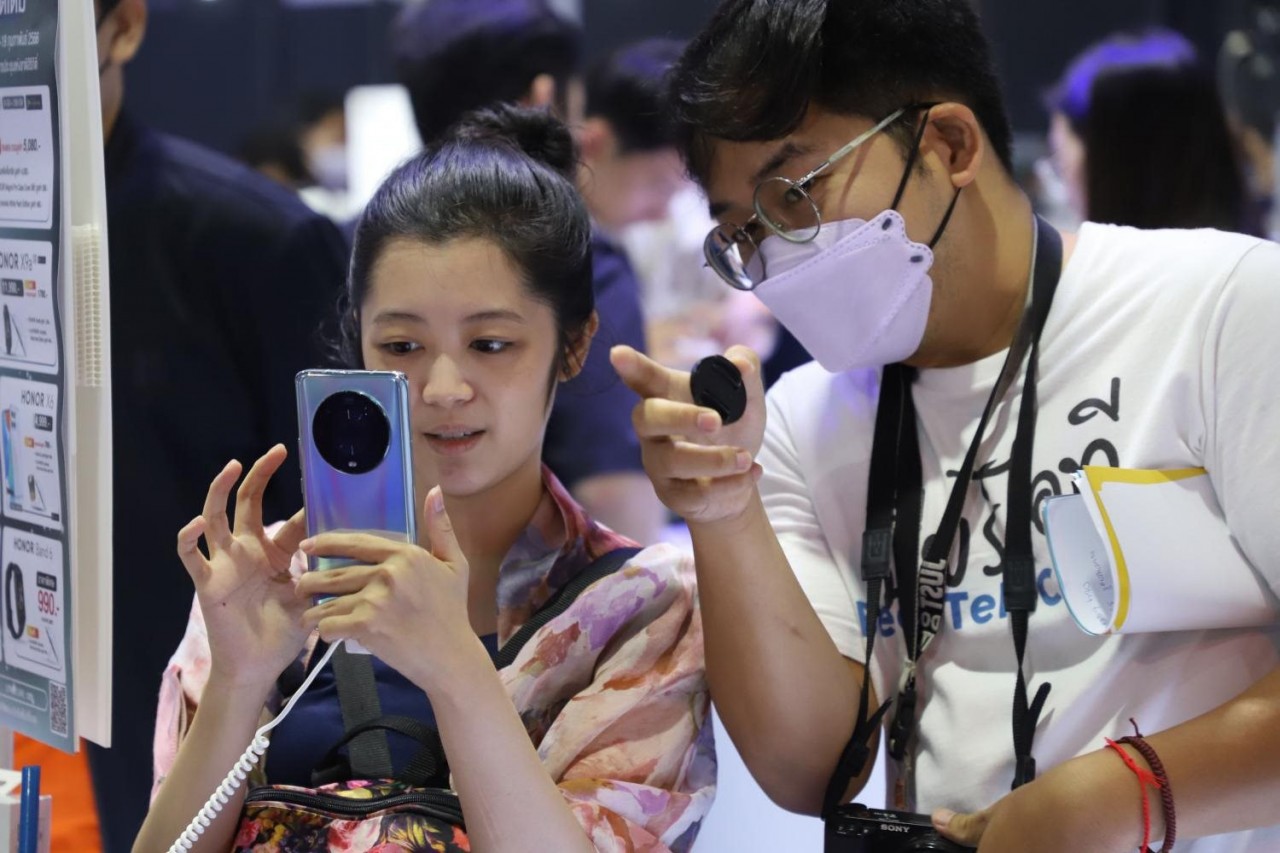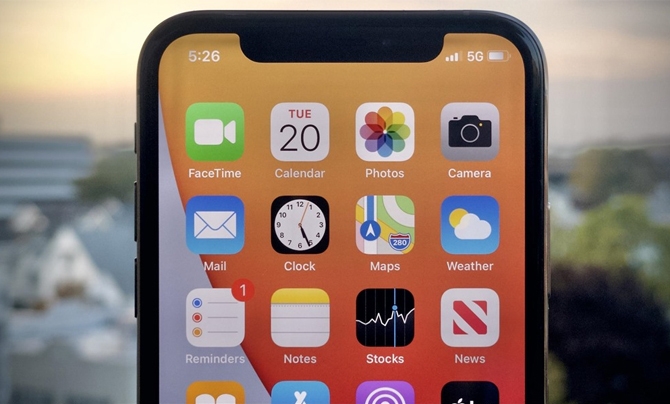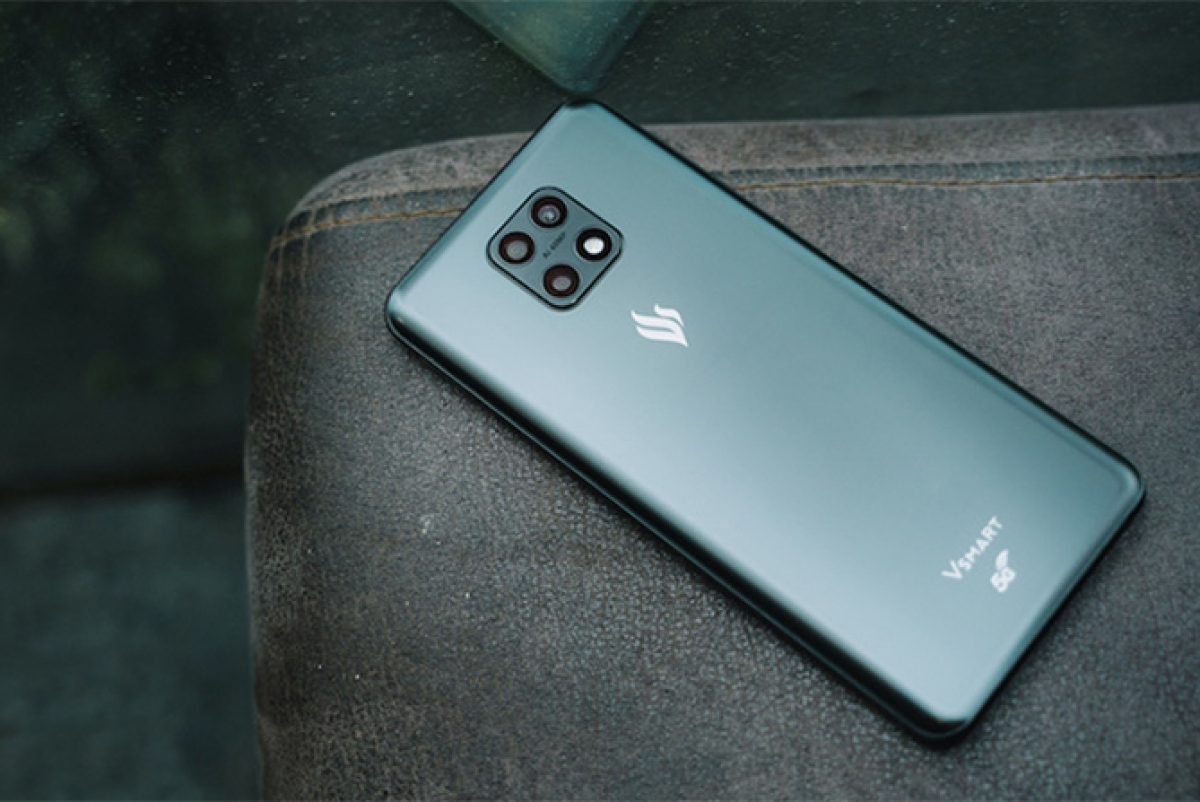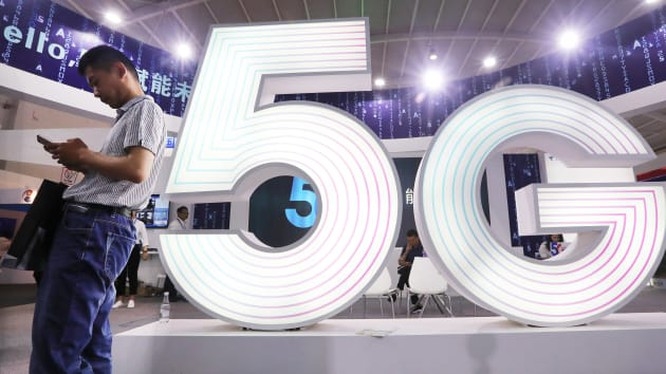Vietnam’s digital development among fastest in the world
The "Digital In The Time Of Covid" study conducted by the Tufts University's Fletcher School and Mastercard, measured the digitalization of 90 economies using 160 key indicators of digital development across four key drivers.
The key drivers were: supply conditions (e.g. infrastructure, logistic performance), demand conditions (consumer ability and willingness to spend, use of mobile digital money), institutional environment (bureaucracy, investor protections), and innovation and change (start-up capacity, value creation).
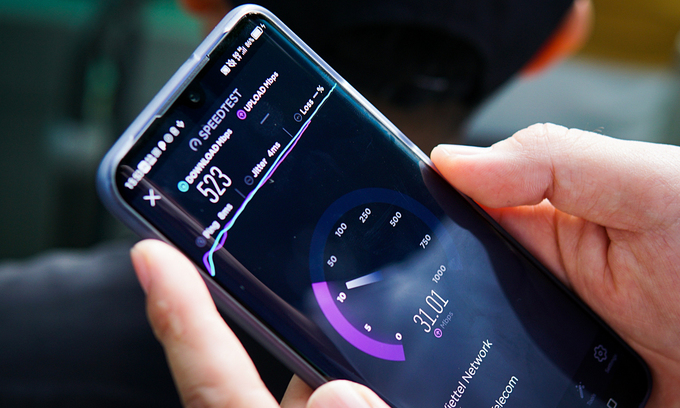 |
| Internet speed is measured on a smartphone during a 5G test run in Hanoi, November 30, 2020. Photo by VnExpress/Luu Quy. |
Vietnam scored 62.37 points in digital evolution momentum, standing behind China (85.51 points), Azerbaijan (65.28), Indonesia (64.03), and India (62.95).
However, an overall score of 46.79 points saw Vietnam 60th out of 90 global markets, resulting in it being labeled in the "Break Out" zone in the fast digital momentum scorecard, VNExpress reported.
According to the report, economies in the "Break Out" zone have "lower scores in their present states of digitalization but are evolving rapidly," and also have "significant headroom for growth, which make them highly attractive to innovators and investors."
Markets in this zone have positive attitudes towards technology but are "held back often by relatively weak infrastructure and poor institutional quality."
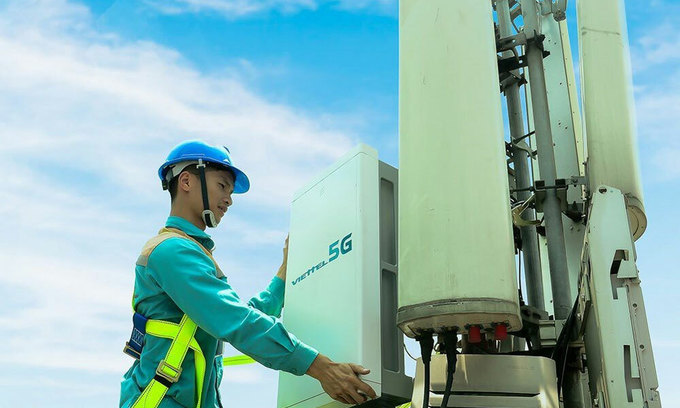 |
| A worker installs 5G equipment in Ho Chi Minh City. Photo courtesy of Viettel. |
In the ranking for digital trust which measures consumers' confidence in engaging in activities online, Vietnam stands in 36th place in the environment (privacy, security and accountability measures), 30th in experience (infrastructural friction, access friction, and interaction friction), 17th in behavior (consumer's level of engagement with the digitalizing world), and third in attitudes (technology's value and information's credibility in the digital environment).
The study found Vietnam was placed low in the experience measure because of a lack of seamless online interaction and transaction experiences. However, it achieved a higher ranking in behavior and attitudes measures because of the high level of engagement via social media, e-commerce, and mobile payments, and a positive outlook towards technology.
The report lauded Vietnam, along with Kenya and India, for their efforts in increasing mobile internet access. Vietnam is now approaching near-universal 4G access.
Vietnam plans to drop its current 24 million 2G subscribers, or 18.5 percent of the total, to under 5 percent by 2022 so that it can stop this service and push the development of higher-technology cellular networks.
5G to come online in Vietnam mid-2021: telecom authority
The Ministry of Information and Communications would officially approve 5G services next year following two years of trials.
"Following commercial trials, service providers must evaluate the associated results regarding technical features, commercial potential, business models, and market demand," Nguyen Phong Nha, head of the Vietnam Telecommunications Authority (VNTA) under the ministry, said at a Thursday meeting.
The ministry expects to approve 5G services in mid-2021, Nha said.
However, nationwide deployment would not commence immediately, dependent on market demand. For example, major cities like Hanoi, HCMC, or Da Nang would be prioritized due to their need for high-speed services and their denser populations. The same goes for industrial areas with foreign investments, where "smart" factories are a necessity, he said.
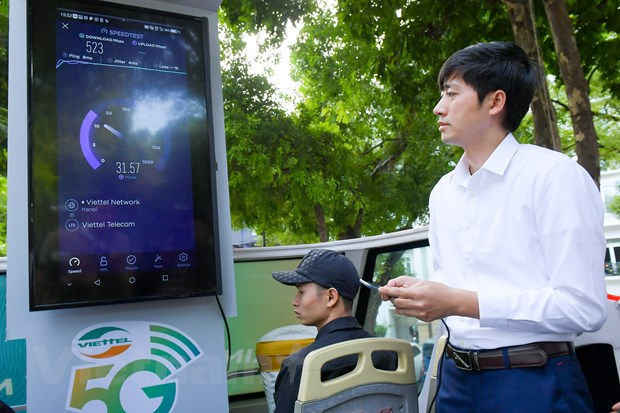 |
| Viettel tests commercial 5G in Hanoi Photo: Minh Son/ Vietnamplus |
Three major telecom providers VNPT, MobiFone, and Viettel have been commercially trialing 5G services. Since November, users of these three providers could have tried 5G connections themselves in trialed areas and with 5G-supported smartphones.
5G trials by VNPT and Viettel boasted a speed of up to 1 Gbps, 10 times greater than that of 4G.
Telecom providers in Vietnam are expecting to price 5G services at the same rate as their 4G equivalents, and would not require users to change their SIM cards.
A VNPT representative said at the conference: "5G would be free during trial periods, at least until the end of January 2021. After that, its price would be similar to 4G." A MobiFone rep concurred.
For the next two years, 5G usage would focus on industrial areas and major cities, and from 2023 to 2025, would be distributed as widely as 4G, reaching even rural areas, according to a telecom provider representative attending the event.
Vietnam plans to provide 5G coverage nationwide by 2030, offering all citizens broadband Internet connection at low cost, according to VNTA.
 | Bitcoin breaks above $19,000, new all-time high seems imminent Bitcoin jumped above $19,000 on November 24 for the first time since 2017 as Wall Street and Main Street rekindled their interest in cryptocurrencies and ... |
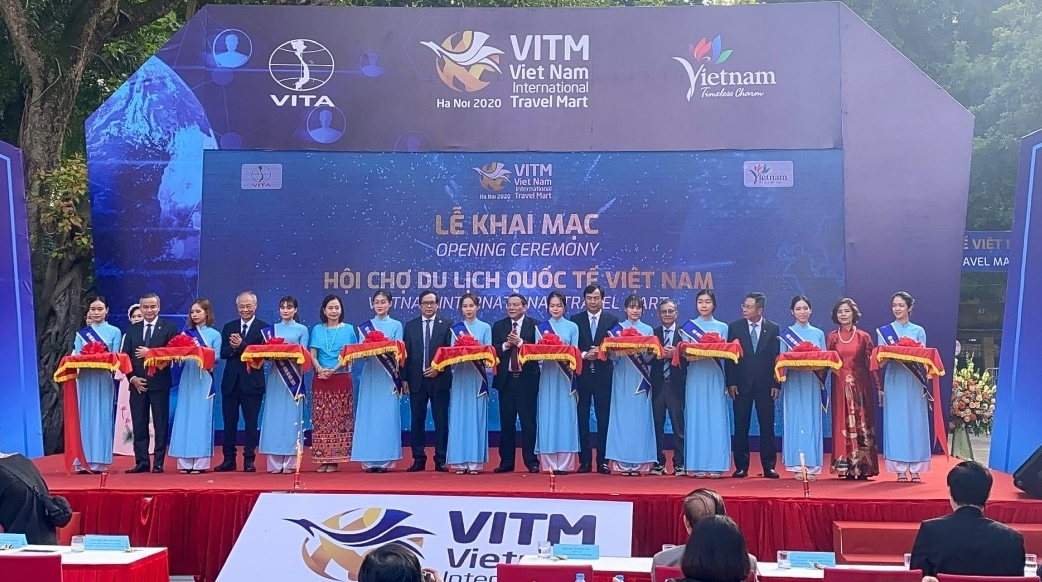 | VITM Hanoi 2020: Digital transformation pushes Vietnam tourism On November 18, the Vietnam International Travel Mart 2020 (VITM) – Hanoi 2020 officially opened with the theme ‘Digital transformation pushes tourism’ at the Hanoi ... |
 | International Men's Day: Recommendations on best digital greeting card With a view to highlighting the role of males in society, November 19 is celebrated as International Men's Day. |
Recommended
 Viet's Home
Viet's Home
French-Vietnamese Author Introduces Book Series "Memories of Overseas Vietnamese"
 Viet's Home
Viet's Home
Vietnam's Human Development Index Remains High
 Viet's Home
Viet's Home
Vietnam’s Mark on UN Day of Vesak Celebrations
 Viet's Home
Viet's Home
Art Program Spreads Message of Peace Worldwide
Popular article
 Expats in Vietnam
Expats in Vietnam
Look Forward to New Developments in Vietnam - US Relations
 Viet's Home
Viet's Home
She Feeds the World: 8,000 Individuals Adopt More Sustainable Agricultural Practices
 Viet's Home
Viet's Home
Over 200 Valuable Documents Displayed at 'Mountains and Rivers Connected One Strip' Exhibition
 Viet's Home
Viet's Home







